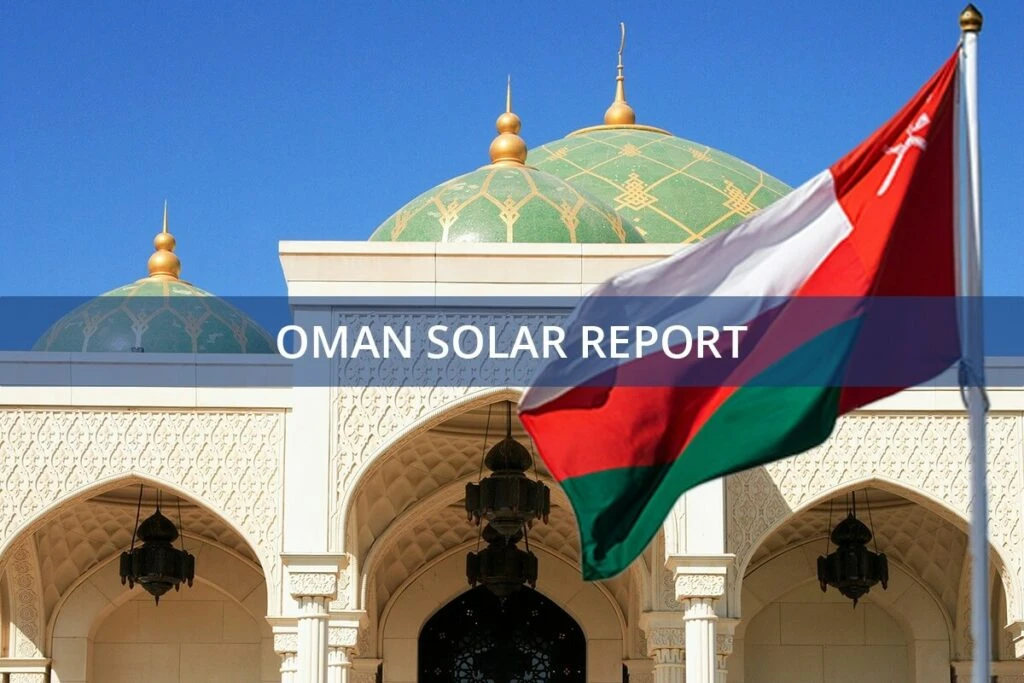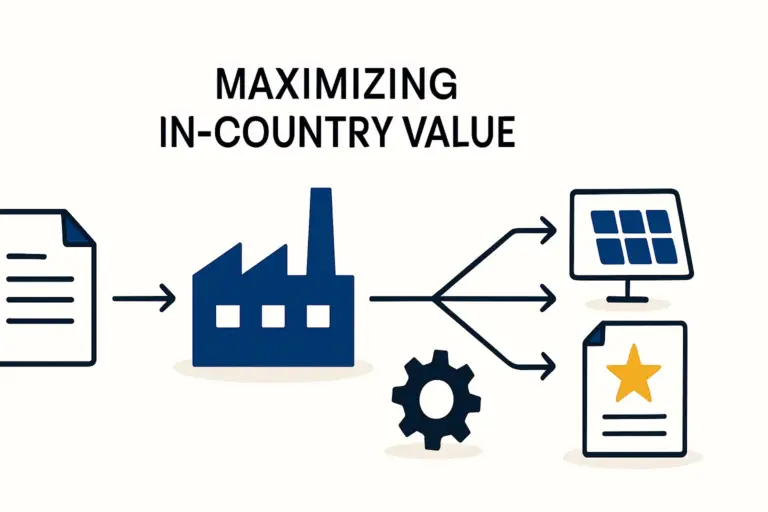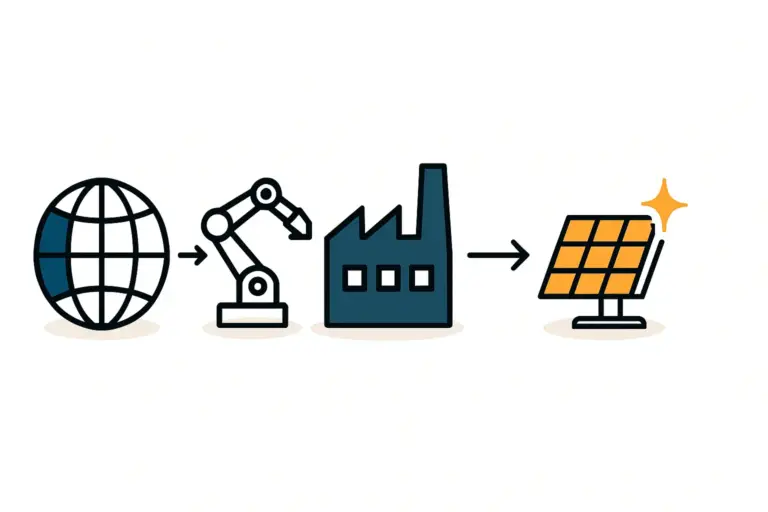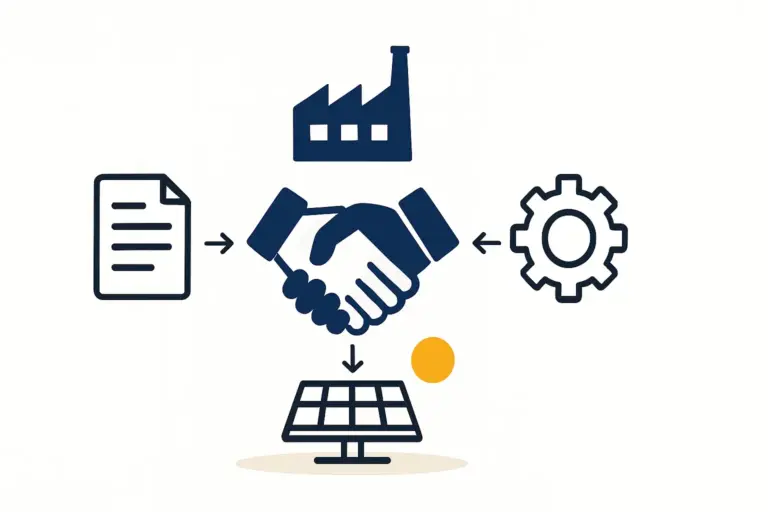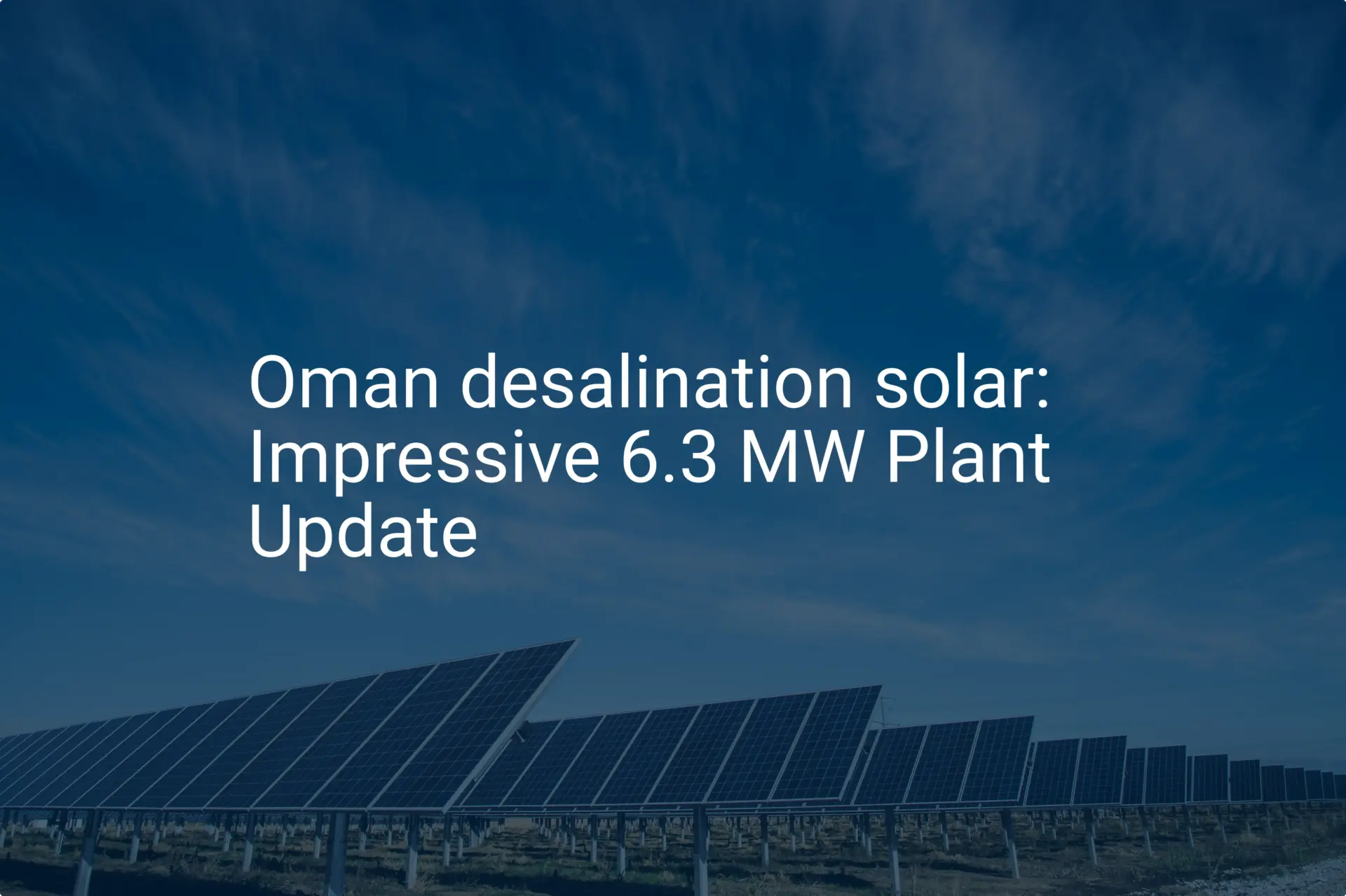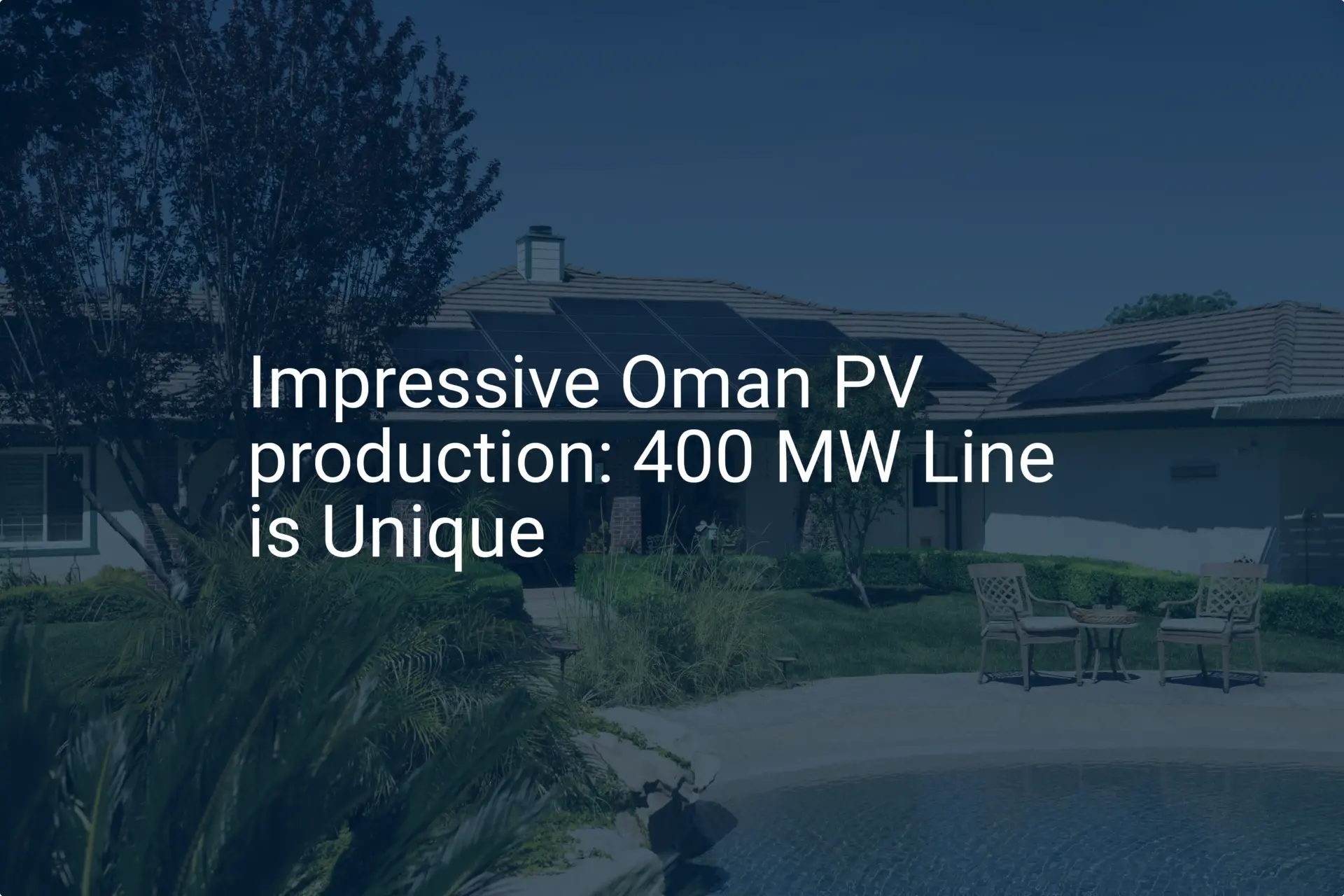Disclaimer: This case study represents a composite example derived from real-world
consulting work by J.v.G. Technology GmbH in solar module production and factory optimization. All data points are realistic but simplified for clarity and educational purposes.
For decades, Oman’s economic strength has been built on industrial prowess and the prudent management of its natural resources. Today, as the nation charts a new course with Vision 2040 and a commitment to Net Zero by 2050, a compelling opportunity emerges for its established industrial groups and family businesses.
The transition to renewable energy is not just a policy objective; it is the next major industrial frontier. For these conglomerates, diversifying into solar module manufacturing is a logical and strategic extension of the capabilities that have already brought them success.
This guide outlines a practical model for investing in this high-growth sector. It is designed for business leaders who recognize the potential of solar energy but require a structured, low-risk pathway into a new technical domain. The focus is on leveraging existing corporate strengths—financial, operational, and logistical—to build a profitable, sustainable manufacturing enterprise that directly supports national development goals.
The Omani Opportunity: Aligning Corporate Growth with National Vision
The case for investing in local solar module production in Oman rests on powerful economic and policy drivers. Unlike speculative ventures, this opportunity is rooted in a clear, government-backed trajectory toward energy independence and economic diversification.
A Market Defined by Policy and Demand
Oman’s energy strategy creates a predictable and rapidly expanding domestic market. The government’s target of increasing solar capacity from 159 MW in 2020 to 4,000 MW by 2030 signals massive demand for solar panels. This target creates a reliable offtake environment for locally produced modules.
Furthermore, the In-Country Value (ICV) program is a critical market-shaping mechanism. This policy mandates the use of local goods and services in large-scale projects, particularly in the energy sector. For an Omani conglomerate, a local manufacturing facility provides a powerful competitive advantage, ensuring your products are not just available but actively preferred for the nation’s most significant solar developments. This creates a protected market less susceptible to international price fluctuations.
Ideal Environmental and Industrial Conditions
Oman is geographically blessed with some of the world’s highest solar irradiance levels, making solar power generation exceptionally efficient and economically viable.
This natural advantage is complemented by a robust industrial base. Decades of experience in complex sectors like oil and gas, construction, and logistics have cultivated a workforce and management culture skilled in handling large-scale industrial projects. These existing skills in project management, supply chain coordination, and quality control are directly transferable to solar module manufacturing.

The Conglomerate Advantage: Leveraging Existing Strengths for a New Venture
For an established industrial group, entering solar manufacturing is not like starting from scratch. It is a strategic diversification that leverages the full weight of an existing corporate structure to de-risk the investment and accelerate market entry.
Financial Synergies and Asset Leverage
One of the most significant advantages is the ability to structure the investment internally. Instead of seeking external venture capital, a conglomerate can use its strong balance sheet and established credit lines.
Existing assets, such as industrial land or underutilized buildings, can be repurposed for the new factory, drastically reducing initial capital expenditure. This financial stability allows for a more patient, long-term approach focused on building a sustainable business rather than chasing short-term returns. For a detailed breakdown, a comprehensive solar module manufacturing business plan is an essential starting point.
Operational and Logistical Integration
Your group already possesses sophisticated operational capabilities. Your logistics division can manage the import of raw materials and distribution of finished modules, your HR department understands the local labor market, and your project management teams know how to deliver complex projects on time and on budget. Integrating the new solar factory into this existing ecosystem creates immediate efficiencies and reduces the operational friction that often challenges standalone startups.
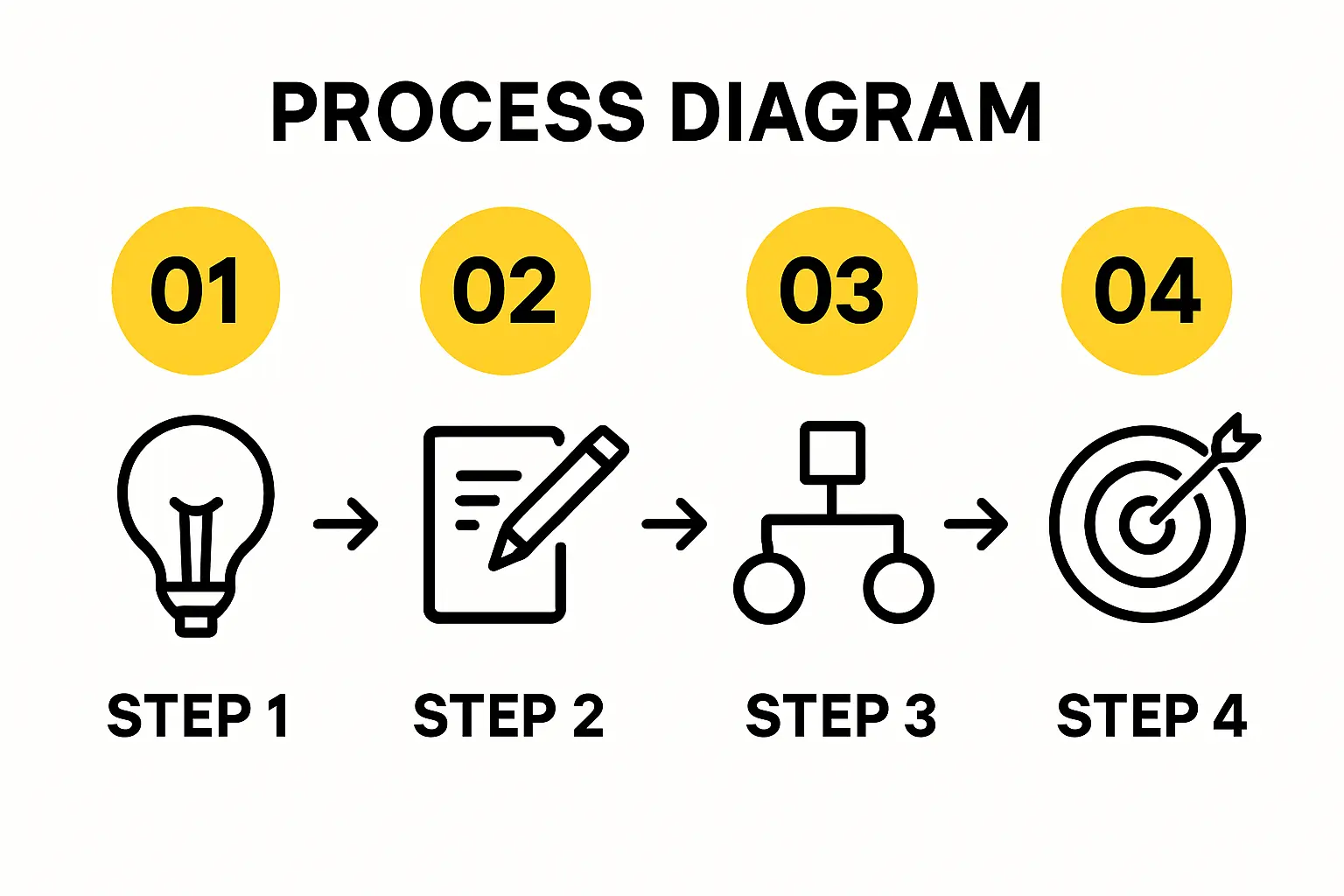
A Practical Investment Model: The Turnkey Factory Approach
The primary barrier for many business leaders is the perceived technical complexity of solar manufacturing. The turnkey factory model is specifically designed to overcome this obstacle, providing a complete, managed solution that allows your organization to focus on business strategy rather than intricate engineering details.
What is a Turnkey Production Line?
A turnkey solution is a comprehensive package where an experienced engineering partner, such as European PV manufacturers, designs, supplies, installs, and commissions the entire solar panel production line. This end-to-end service includes:
- Factory Layout and Process Design: Optimizing the workflow for efficiency and quality.
- Equipment Sourcing and Integration: Selecting and installing machinery from trusted global suppliers.
- Staff Training and Knowledge Transfer: Equipping your local team with the skills to operate and maintain the facility.
- Commissioning and Initial Production: Overseeing the start-up phase to ensure the line meets all performance and quality specifications.
This approach effectively transfers decades of specialized knowledge to your team, minimizing technical risk and ensuring a rapid, successful launch.
The DESERT+ Line: Engineered for Oman’s Environment
Not all solar technology is suited for the demanding climate of the Arabian Peninsula. Standard solar modules can suffer accelerated degradation due to high ambient temperatures, UV radiation, and abrasive dust.
The European industrial solutions provider DESERT+ turnkey line is specifically engineered to produce modules that excel in these conditions. It focuses on manufacturing Glass-Glass and other robust module types designed for longevity and high performance in arid environments. This technological focus ensures the products from your factory are not just locally made but genuinely superior for the local market, commanding a premium in quality and reliability.

Key Financial and Operational Considerations
A well-structured plan is crucial. Based on experience from numerous turnkey projects, a typical entry-level factory can be established with the following parameters in mind:
- Capacity: A starting capacity of 20–50 MW per year is often a prudent first step, allowing for a manageable scale-up as the market matures.
- Investment: The investment required to start a solar panel manufacturing unit typically falls within a manageable range for established industrial groups, especially when using existing assets.
- Personnel: A semi-automated line of this size can often be operated with a lean team of 25–40 employees, including operators, technicians, and administrative staff.
- Timeline: With a turnkey partner, the process from final investment decision to the first module coming off the line can be completed in under 12 months.
This model provides a clear, predictable path for integrating a new, high-tech manufacturing division into your corporate portfolio.
Frequently Asked Questions for Business Leaders
-
Do we need prior experience in the solar industry to succeed?
No. The turnkey model is designed for new market entrants. Your partner provides the technical expertise, training, and operational blueprints. Your role is to provide the business acumen, financial oversight, and local market knowledge—strengths your conglomerate already possesses. -
How can a local factory compete with large-scale international manufacturers?
Competition is not solely on price. Local manufacturing offers several distinct advantages in Oman:
- ICV Compliance: Preferential treatment in government and large-scale tenders.
- Logistical Benefits: Reduced shipping costs, no import tariffs, and faster delivery times.
- Local Support and Service: The ability to provide immediate technical support and replacement modules is a significant advantage for large solar farm operators.
- Customization: The flexibility to produce modules tailored to specific local project requirements.
-
What is the biggest unforeseen challenge for new entrants?
Often, the biggest challenge is not technology but the supply chain for raw materials (e.g., solar cells, glass, encapsulants). An experienced turnkey partner helps establish a robust and reliable supply chain strategy from the outset, connecting you with qualified international suppliers and helping to negotiate favorable terms. -
How does this venture fit into a diversified corporate portfolio?
A solar manufacturing unit can function as both a standalone profit center and a strategic internal supplier. It can sell modules to the open market while also supplying other divisions within your group—for example, a real estate arm developing solar-powered communities or an industrial division looking to reduce its energy costs with rooftop solar installations.
The Path Forward
For Omani conglomerates, the move into solar module manufacturing is a powerful synergy of national interest and corporate strategy. It is a calculated diversification into a sector with government-backed demand, clear competitive advantages through ICV policies, and a business model that capitalizes on your existing financial and operational strengths.
By partnering with a technical expert through a turnkey model, you can enter this new domain with confidence, transforming a complex industrial challenge into a manageable and highly promising investment. This is an opportunity to not only build a profitable new business line but also to play a leading role in realizing Oman’s Vision 2040.
Download the Omani Solar Market Entry Case Study (PDF)
Author: This case study was prepared by the
turnkey solar module production specialists at J.V.G. Technology GmbH
It is based on real data and consulting experience from J.v.G. projects
worldwide, including installations ranging from 20 MW to 500 MW capacity.

